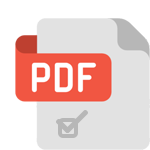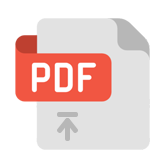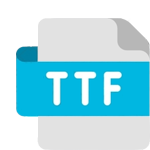Strategies of Teachers in Developing an Islamic Religious Education Curriculum
Keywords:
Curriculum Development, Islamic Religious Education, Islamic School, Islamic TeacherAbstract
In the current era, the teacher's role in developing a learning curriculum that suits needs is urgent. Teachers are required to empower various digital platforms such as learning applications, websites, and other online resources to make learning more exciting and facilitate students' accessibility. This research aimed to investigate teachers' strategies for increasing the Islamic religious education (PAI in Indonesian) curriculum. This study used literature reviews from various sources related to this topic. The results show that the teacher's strategies in curriculum development may vary according to the centralized, decentralized, or central-decentralized management approach. Teachers were also essential as implementers, adapters, developers, and researchers. Besides, teachers were not only asked to transfer knowledge but also responsible for conducting other crucial values through reciprocal interaction, which was the primary key in the learning process. It means that teachers guided students to get what pupils needed. Thus, this article provides an alternative model for teachers in developing and implementing the PAI curriculum to achieve educational goals.
References
Achruh, A., & Pasinringi, A. (2016). Eksistensi guru dalam pengembangan kurikulum. Jurnal Inspiratif Pendidikan, 5(2), 416–426.
Adila, A. U., Sari, I. P., & Adiyono, A. (2023). The Role of Teachers in The Development of Islamic Religious Education (PAI) Curriculum in Public Junior High Schools. Pedagogia: Jurnal Ilmiah Pendidikan, 15(1), 1–8.
Alnaji, A. O. (2022). Curriculum Planning Model in General Education. Journal of Curriculum and Teaching, 11(5), 275–288.
Ayuningsih, W., Syafaruddin, S., & Amiruddin, M. S. (2020). Implementation of Islamic Education Curriculum Development in Al Ulum Islamic School Medan. Budapest International Research and Critics in Linguistics and Education (BirLE) Journal, 3(2), 1033-1044.
Bahri, S. (2011). Pengembangan kurikulum dasar dan tujuannya. Jurnal Ilmiah Islam Futura, 11(1), 15–34.
Barab, S. A., & Luehmann, A. L. (2003). Building sustainable science curriculum: Acknowledging and accommodating local adaptation. Science Education, 87(4), 454–467.
Basid, A. (2017). Innovation of islamic education (pai) based on multiple intelligences. Didaktika Religia, 5(2), 325–344.
Beaudry, J. S., & Miller, L. (2016). Research literacy: A primer for understanding and using research. Guilford Publications.
Cubukcu, Z. (2012). The effect of hidden curriculum on character education process of primary school students. Educational Sciences: Theory and Practice, 12(2), 1526–1534.
Dahri, A., Husni, M., & Adib, M. (2023). Integration of Values in Serat Wulangreh with Pesantren’s Values in Building Professionalism of Ma’had Teachers. AL-ISHLAH: Jurnal Pendidikan, 15(2), 1538–1548.
Dillard, N., & Siktberg, L. (2013). Curriculum development: An overview. Teaching in Nursing E-Book: A Guide for Faculty, 76.
El-Moslimany, A. (2018). Teaching children: a moral, spiritual, and holistic approach to educational development. International Institute of Islamic Thought (IIIT).
Erihadiana, M., & Ridwan, A. H. (2021). Spiritual Intelligence of Islamic Education Concepts. 5th Asian Education Symposium 2020 (AES 2020), 149–152.
Fatmawati, I. (2021). Peran Guru Dalam Pengembangan Kurikulum Dan Pembelajaran. Jurnal Pendidikan Dan Pemikiran, 20–37.
Fauzi, A. (2017). Kepemimpinan Kepala Madrasah Dalam Mengembangkan Lembaga Pendidikan Islam. Nidhomul Haq: Jurnal Manajemen Pendidikan Islam, 2(2), 53–64.
Geldenhuys, J. L., & Oosthuizen, L. C. (2015). Challenges influencing teachers’ involvement in continuous professional development: A South African perspective. Teaching and Teacher Education, 51, 203–212.
Hamalik, O. (2010). Kurikulum dan Pembelajaran. Bumi Aksara.
Harden, R. M., Sowden, S., & Dunn, W. R. (1984). Educational strategies in curriculum development: the SPICES model. Medical Education, 18(4), 284–297.
Hasriadi, H., Siswanto, S., & Muktamar, A. (2023). Islamic Religious Education Curriculum Development Model. Indonesian Journal of Research and Educational Review, 2(4), 55 – 69. https://doi.org/10.51574/ijrer.v2i4.936
Helmi, A. (2015). Kinerja Guru Dalam Meningkatkan Prestasi Siswa Pada Smp Negeri 2 Babahrot Aceh Barat Daya. Jurnal Administrasi Pendidikan: Program Pascasarjana Unsyiah, 3(1).
Hussain, A., Dogar, A. H., Azeem, M., & Shakoor, A. (2011). Evaluation of curriculum development process. International Journal of Humanities and Social Science, 1(14), 263 – 271.
Hussin, N. H., & Tamuri, A. H. (2019). Embedding values in teaching Islamic education among excellent teachers. Journal for Multicultural Education, 13(1), 2–18.
Ishomuddin, I., & Scanif Bin Mokhtar, S. B. M. (2017). Teaching-Learning Model of Islamic Education Based on Mosque in Singapore. International Journal of Asian Social Science, 7(3), 218–225.
Istiana, A., Sriyanto, S., Darojat, D., & Nofiyanto, N. (2023). Efforts of Islamic Religious Education Teacher in Building Stundent’s Moral at UMP Elementary School After Pandemic Covid-19. Proceedings of the 2nd International Conference on Social Sciences, ICONESS 2023, 22-23 July 2023, Purwokerto, Central Java, Indonesia.
Jauhari, M. T. (2020). Desain pengembangan pembelajaran pendidikan agama Islam di sekolah dan madrasah. Islamika, 2(2), 328-341.
Kambali, K., Djubaedi, D., Jamali, J., Suratno, U., Fatimah, S., & Hidayat, A. (2022). The Development of Multicultural Curriculum for Islamic Religious Education: A Literature Review. International Journal of Social Science and Human Research, 05(07). https://doi.org/10.47191/ijsshr/v5-i7-41
Komariah, N., & Nihayah, I. (2023). Improving The Personality Character of Students Through Learning Islamic Religious Education. At-Tadzkir: Islamic Education Journal, 2(1), 65–77. Kranthi, K. (2017). Curriculum development. IOSR Journal of Humanities and Social Science, 22(2), 1–5.
Naofa, M., Zahari, I., Maq, M. M., Sidik, J., Kholik, N., & Muhammad, H. Z. (2023). Learning Objectives Of Islamic Religious Education In Schools: The Role Of The Teacher And Its Implications Based On Relevant Study. Dharmas Education Journal (DE_Journal), 4(2), 845–852.
Lutfia, M., Suharto, Y., & Srinio, F. (2023). The Relevance of The Madrasah Diniah Takmiliyah Curriculum to Islamic Religious Education. At-Tadzkir: Islamic Education Journal, 2(2), 143–153.
Mansir, F., & Musadad, I. (2023). The Professionalism of Islamic Education Teachers In Learning Management. AL-WIJDÃN Journal of Islamic Education Studies, 8(1), 107–123.
Marinda, S. M., Hayati, N., & Kurnia, R. (2024). Proposing a Model of Impression Learning Program to Foster Elementary Students’ Mathematics Skills in an Islamic Context. KEDJATI Journal of Islamic Civilization, 1(1), 1–19.
McCormick, R., & James, M. (2018). Curriculum evaluation in schools. Routledge.
Muhaimin. (2019). Pengembangan kurikulum pendidikan agama Islam: di sekolah, madrasah, dan perguruan tinggi. Raja Grafindo Persada.
Muhaimin, A. (2012). Pengembangan kurikulum pendidikan agama islam di sekolah, madrasah, dan perguruan tinggi jakarta: PT. Raja Grafindo Persada.
Muhtadi, A., Mulyoto, M., & Hasyim, D. (2023). Development of an Evaluation Model for Islamic Religious Education and Character Education (PAI-BP) at The High School Level: Between Urgency and Effectiveness. Journal Research of Social Science, Economics, and Management, 3(2), 556–574.
Mulyasa, H. E. (2020). Menjadi guru profesional menciptakan pembelajaran kreatif dan menyenangkan.
Nurhadi, N., & Harahap, M. I. (2021). Teacher’s Responsibility in Islamic Education (Relevance of Hamka and Hasan Langgulung Thought). PALAPA, 9(1), 137–181.
Nurlaelah, N., Jamali, J., Rosidin, D. N., & Fatimah, S. (2023). A Multicultural Approach on Islamic Religious Education. International Journal of Social Science and Human Research, 06(04). https://doi.org/10.47191/ijsshr/v6-i4-38
Pai, A. (1997). Pendidikan agama islam. Jurnal, Diakses Pada, 18(10), 2018.
Prasetyo, A. R., & Hamami, T. (2020). Prinsip-prinsip dalam pengembangan kurikulum. Palapa, 8(1), 42–55.
Primrose, K., & Alexander, C. R. (2013). Curriculum development and implementation: Factors contributing towards curriculum development in Zimbabwe higher education system. European Social Sciences Research Journal, 1(1), 55–65.
Putra, H. P. (2004). Pendidikan Islam dalam Sistem Pendidikan Nasional di Indonesia. In JURNAL ILMIAH DIDAKTIKA: Media Ilmiah Pendidikan dan Pengajaran (Issue 1). Prenada Media Group.
Rahman, Z. A., & Shah, I. M. (2015). Measuring Islamic spiritual intelligence. Procedia Economics and Finance, 31, 134–139.
Ramanda, R., Akbar, Z., & Wirasti, R. A. M. K. (2019). Studi kepustakaan mengenai landasan teori body image bagi perkembangan remaja. JURNAL EDUKASI: Jurnal Bimbingan Konseling, 5(2), 121–135.
Ramparsad, R. (2001). A strategy for teacher involvement in curriculum development. South African Journal of Education, 21(4), 287–291.
Ratnawati, H. M. (2016). Managing Multicultural Education in Islamic Primary Schools: a Communication Strategy. ICoMS 2016, 203.
Richey, R. C., & Klein, J. D. (2014). Design and development research: Methods, strategies, and issues. Routledge.
Rohman, A. (2009). Memahami pendidikan dan ilmu pengetahuan. Yogyakarta: Laksabang.
Sahika, U. (2018). Curriculum development study for teacher education supporting critical thinking. Eurasian Journal of Educational Research, 18(76), 165–186.
Sahin, A. (2018). Critical issues in Islamic education studies: Rethinking Islamic and Western liberal secular values of education. Religions, 9(11), 335.
Salim, A. (2023). Islamic Religious Education (PAI) Learning Based on The Independent Curriculum of Elementary School at Yogyakarta. Ta’dib, 26(1), 199–212.
Saraswati, S., Safitri, A., & Kabiba, K. (2020). Peran Guru dalam Implementasi Kurikulum 2013. Jurnal Pendidikan Dan Pengajaran (JPP), 1(3), 120–128.
Shawer, S. F. (2010). Classroom-level curriculum development: EFL teachers as curriculum-developers, curriculum-makers and curriculum-transmitters. Teaching and Teacher Education, 26(2), 173–184.
Soto, S. T. (2015). An analysis of curriculum development. Theory & Practice in Language Studies, 5(6).
Stabback, P., Male, B., & Georgescu, D. (2011). What makes a good quality school curriculum. Geneva: United Nations Education, Scientific and Cultural Organization-International Bureau of Education.
Sternberg, R. J., & Williams, W. M. (1996). How to develop student creativity. ASCD. Sudjana, N. (2017). Dasar-dasar Proses Belajar Mengajar: Buku wajib yang akan meningkatkan wawasan dan pengetahuan menuju profesionalitas guru. Sinar Baru Algensindo.
Sukmadinata, N. S. (1988). Prinsip dan landasan pengembangan kurikulum. Jakarta: Depdikbud Dirjen Dikti.
Supriani, Y., Meliani, F., Supriyadi, A., Supiana, S., & Zaqiah, Q. Y. (2022). The Process of Curriculum Innovation: Dimensions, Models, Stages, and Affecting Factors. Nazhruna: Jurnal Pendidikan Islam, 5(2), 485–500.
Thijs, A., & Van Den Akker, J. (2009). Curriculum in development. Netherlands Institute for Curriculum Development (SLO).
Triwiyanto, T. (2022). Manajemen kurikulum dan pembelajaran. Bumi Aksara.
Trouche, L., Gitirana, V., Miyakawa, T., Pepin, B., & Wang, C. (2019). Studying mathematics teachers interactions with curriculum materials through different lenses: Towards a deeper understanding of the processes at stake. International Journal of Educational Research, 93, 53–67.
Usman, M., & Zainuddin, M. (2021). The Exemplary Approach of Islamic Religious Education Teachers in Fostering Emotional Spiritual Quotient. AL-ISHLAH: Jurnal Pendidikan, 13(3), 2621–2630.
Utomo, S. T., & Ifadah, L. (2020). Inovasi Kurikulum Dalam Dimensi Tahapan Pengembangan Kurikulum Pendidikan Agama Islam. Journal of Research and Thought on Islamic Education (JRTIE), 3(1), 19–38.
Wilkinson, C., & Cave, E. (2018). Teaching and managing: Inseparable activities in schools. Routledge.
Winarto, W., Syahid, A., & Saguni, F. (2020). Effectiveness the use of audio visual media in teaching islamic religious education. International Journal of Contemporary Islamic Education, 2(1), 81–107.
Downloads
Published
Issue
Section
License
Copyright (c) 2024 Resta Desty ladina Resta, Dr. Mohamad Erihadiana, M.Pd (Author)

This work is licensed under a Creative Commons Attribution-ShareAlike 4.0 International License.















